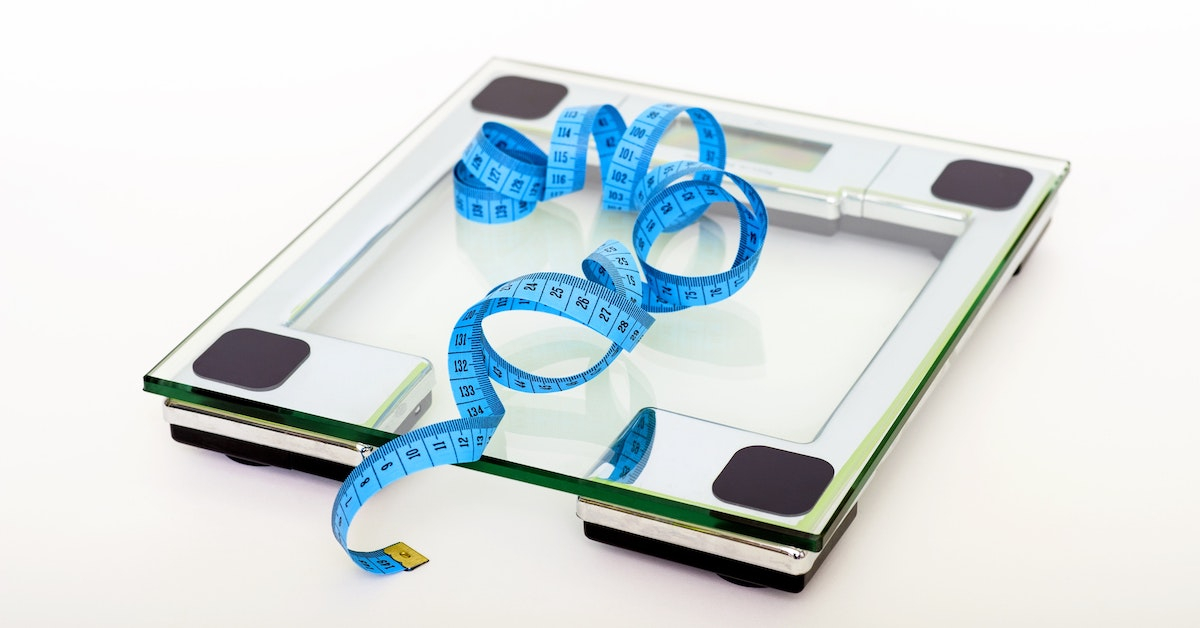This article is sponsored by one of the fastest-growing telehealth companies in America, Antidote Health.
The internet is perhaps one of the most prominent and pervasive double-edged swords in modern life. On one hand, it leaves more information readily accessible at our fingertips than people had at any other point in human history. Unfortunately, the internet is also a place with no shortage of charlatans and grifters eager to muddy the waters with myths, misconceptions, and misinformation.
One area of internet information where it’s tough not to run into myths, misconceptions, and misinformation is info relating to dieting and weight loss. It’s not uncommon to run into conflicting tips, advice, and strategies surrounding weight loss, and it can be tough to parse out correct information from incorrect info.
We’ve already covered what you SHOULD do to reinforce healthy eating habits and weight management, but what should you NOT do with weight management? Here are eight “tips” you can tune out when it comes to dieting, healthy eating, and weight loss.
1. Weighing Yourself Daily
Some diet experts caution against weighing oneself every day. Weight can fluctuate drastically day by day, and frequent scale checking can be a source of anxiety and emotional distress for some people. If you’re one of those people, we would also caution against overthinking what the scale says.
Doing so may not promote disordered eating or worsen stress in all cases. In fact, some reputable studies may actually suggest the contrary. One PLoS One study ascertained that people who took a break of a month or more before checking the scale faced a greater risk of weight gain.
As far as daily weighing is concerned, another study, published and peer-reviewed by the HHS, found that people who hopped on a scale each day consumed less calories and lost as much as 5.6% more weight (on average) than those who didn’t partake in daily weight watching.
It’s important to remember that subtle daily changes (hormones, fluid balance, BMs) can all subtly affect weight, and it’s important to remember that these fluctuations are not always synonymous with weight gain or weight loss. Ultimately, if you’re wondering whether or not daily weight watching is good or bad, the answer is that weight management is not always one or the other; rather, it depends.
2. Sticking To One Workout
Both cardio and aerobic exercises have been known to be beneficial for relieving stress, improving cardiovascular health, and improving one’s overall wellness in general. But when it comes to cutting weight, cardio workouts alone won’t always cut it.
Some people respond better to cardiovascular exercise than others. It may help some people lose substantial weight (Taylor & Francis), whereas other people may experience minimal weight loss or actually gain weight in spite of cardio workouts.
Generally speaking, the most effective way to lose weight through exercise is through a combination of cardio workouts and strength training, not strictly one nor the other. Research from reputed publishers, from Oxford Academic to PubMed, all seem to substantiate this.
3. Worrying About “Juice Cleanses”
Proponents and advocates of “juice fasts” tend to put a lot of stock in their efficacy, even sometimes claiming that they’ll help you see results as soon as a week. But actual, credible researchers tend to put very little credibility on the purported merit and efficacy of these “fasts” or “cleanses”. (Read this in-depth Wiley review for some good analysis on that.)
If anything, legitimate research shows that most dietary “juice cleanses” tend to be more detrimental than beneficial for weight loss in the long run. Another Oxford study found that these juice cleanses tend to be high in sugar and low in protein, which is certainly counterintuitive for long-term weight loss results.
Furthermore, excessive sugar intake has been associated with a potentially increased risk of developing diabetes. A report published by ScienceDirect extrapolated that juice cleanses potentially decreased insulin resistance, suggesting another potential risk and detriment to eating healthy.
4. Cutting Out All Fats From Your Diet
Conventional wisdom would have you believe that most people’s primary objective with weight loss is generally getting in better shape and losing fat, right? Therefore, it would logically follow that you should minimize foods high in natural fat, right? Not necessarily.
While saturated fats and trans fats both exacerbate the risk of hypertension and heart health issues in excess, certain natural fats have actually been found to be beneficial for weight management. Nuts, for example, make for a hearty, nutrient-rich snack, both promoting natural fats, and post-ingestive metabolic improvements.
The research appears to track natural fat foods like almonds, coconuts, and avocados, all having a potentially beneficial long-term effect on weight (Nature). Though being mindful of the amount of fat you consume is always good, it’s usually more helpful to be mindful of the types of fats you’re ingesting.
Rather than low-fat diets, low-carb diets have usually shown more long-term efficacy for weight loss, with perhaps the most famous example being the ketogenic diet. In the long run, consuming “low-fat” and “fat-free” foods may actually backfire, as “diet”-marketed products can still be loaded with refined sugars and other unhealthy additives.
5. Stressing About Your Calorie Intake
While watching and moderating your calorie intake is still an exceedingly important tenet of weight management, it isn’t the be-all, end-all that some folks make it out to be. All in all, the types of foods you’re getting your daily caloric intake from will generally matter more for your hunger and appetite than the number of calories alone.
For example, a snack bowl of fruits and berries will obviously have a very different nutritional value than a snack bowl of potato chips, even if they’re portioned out to similar serving sizes and the exact same amount of calories.
To reiterate a point we stated previously, the evidence appears to substantiate that low-carb diets are more effective for long-term weight loss than low-calorie diets, and not only that, but that the former naturally reinforces the latter.
A study from the Annals of Internal Medicine observed that low-carb ketogenic diets naturally lowered the caloric intake of its participants, and led to greater subsequent weight loss. So yes, while calorie watching is important for weight loss, it’s still not the be-all, end-all for weight loss.
6. The Timeframe For Losing Weight
Contrary to what some people might believe, losing weight faster doesn’t have any direct impact on the risk of regaining that weight, nor does losing weight slowly and more gradually. In fact, losing weight in the shorter term may actually bode better for your odds of losing weight in the longer term.
For instance, one PubMed study found that people who started to quickly lose weight within their first month were potentially five times as likely to lose over 10% of their total body weight within 18 months. But whether you lose weight faster or slower, it’s important to remember that weight management is a lifelong marathon, not a sprint.
7. Breakfast: The Most Important Meal?
Breakfast is ubiquitously known as “the most important meal of the day.” We won’t discount that it’s very important, and very delectable; it’s hard to pass up a good full plate of pancakes, eggs, and bacon every now and then. Don’t overdo the bacon, though!
But even if you aren’t always able to make the most important meal of the day; it isn’t the end of the world. Studies suggest that missing or skipping breakfast may have very little direct impact on weight gain or weight loss, and may actually help improve weight management and metabolism in the context of an intermittent fasting diet (PubMed).
8. The Timeframe When You Eat
If the last two points weren’t big enough hints to get the point across, we’ll get it across here; time has very little bearing on weight loss or weight management! Although some people believe that eating many small meals throughout the day is more beneficial for metabolism, those people are sorely mistaken.
An eight-week study conducted by Cambridge University researchers determined that eating multiple smaller meals throughout the day did not have any substantial effect on weight lost or gained. Moreover, a different study, published by Elsevier, found that eating smaller meals more frequently might actually DIMINISH weight loss progress following bariatric weight loss surgery.
Ultimately, everyone’s different, everyone’s body is different, and the pace at which everyone loses weight is different. As the saying goes, “comparison is the thief of joy,” and despite what some people will try to have you believe, certain weight management strategies won’t have comparable success across the board. And as this list goes to show, some “strategies” might actually be more detrimental than beneficial.
Lastly, if you’re having trouble managing your weight on your own, you shouldn’t be wary of seeking help. Working with a doctor who specializes in weight management doesn’t have to begin or end at the real-world doctor’s office. Besides occasional weight watching in their office, telemedicine providers can help you watch your weight more closely, at home and on the go!
Telemedicine Weight Loss Management
Whether you need to be connected with an online pharmacist who specializes in prescribing dietary medicines, an online doctor who specializes in weight management, or an online cognitive behavioral therapist who can help you reinforce positive habits (like eating healthier), Antidote Health has you covered.
Read our full provider review to learn more about how Antidote Health’s all-in-one telehealth platform does all-it-can to benefit you, and if you like what they offer, you can get started with up to $10 off your first consultation by using the promotional code: RELIEFSEEKER!


